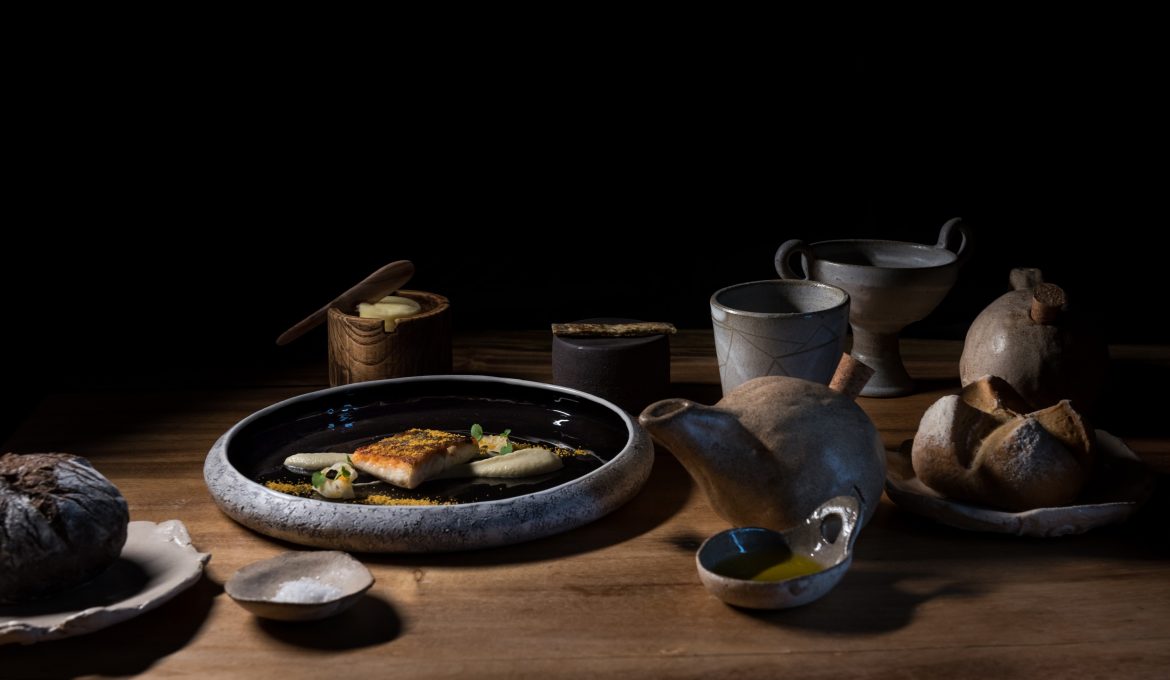Opson Restaurant, Andronis Arcadia
Dr. Jerolyn E. Morrison, Culinary Archaeologist
Chef Stefanos Kolimadis
Opson Restaurant brings you a unique new dining experience – cuisine inspired by the tastes and ingredients of classical Greece. Our head chef Stefanos Kolimadis, in consultation with a classical scholar, has created a tasting menu based on the dishes enjoyed by philosophers such as Aristotle, Plato and Omiros. Using fresh vegetables from our own kitchen garden and locally sourced delicacies, our head chef combines contemporary cuisine with the flavours of an ancient time, bringing together the best Greek food with dishes known and loved by our legendary forefathers.
Interview
Dr. Jerolyn E. Morrison, Culinary Archaeologist
Chef Stefanos Kolimadis
What kind of research goes into your menu, and who does this research?
To build the menu many sources were used that we purchased ourselves for our personal library, or accessed them from various public or private research libraries. Mostly books, documentaries, magazines, various types of ethnographies, as well as examining and reworking both modern, traditional and ancient recipes to understand what works and what does not in terms of food preparation and service that can connect the present and the past. We work both independently and together. We shared most of the information face-to-face in morning and afternoon meetings, especially when we first started. As the project continues we more commonly pass interesting concepts and articles back and forth to get a feel for a new direction and then we meet face-to-face.
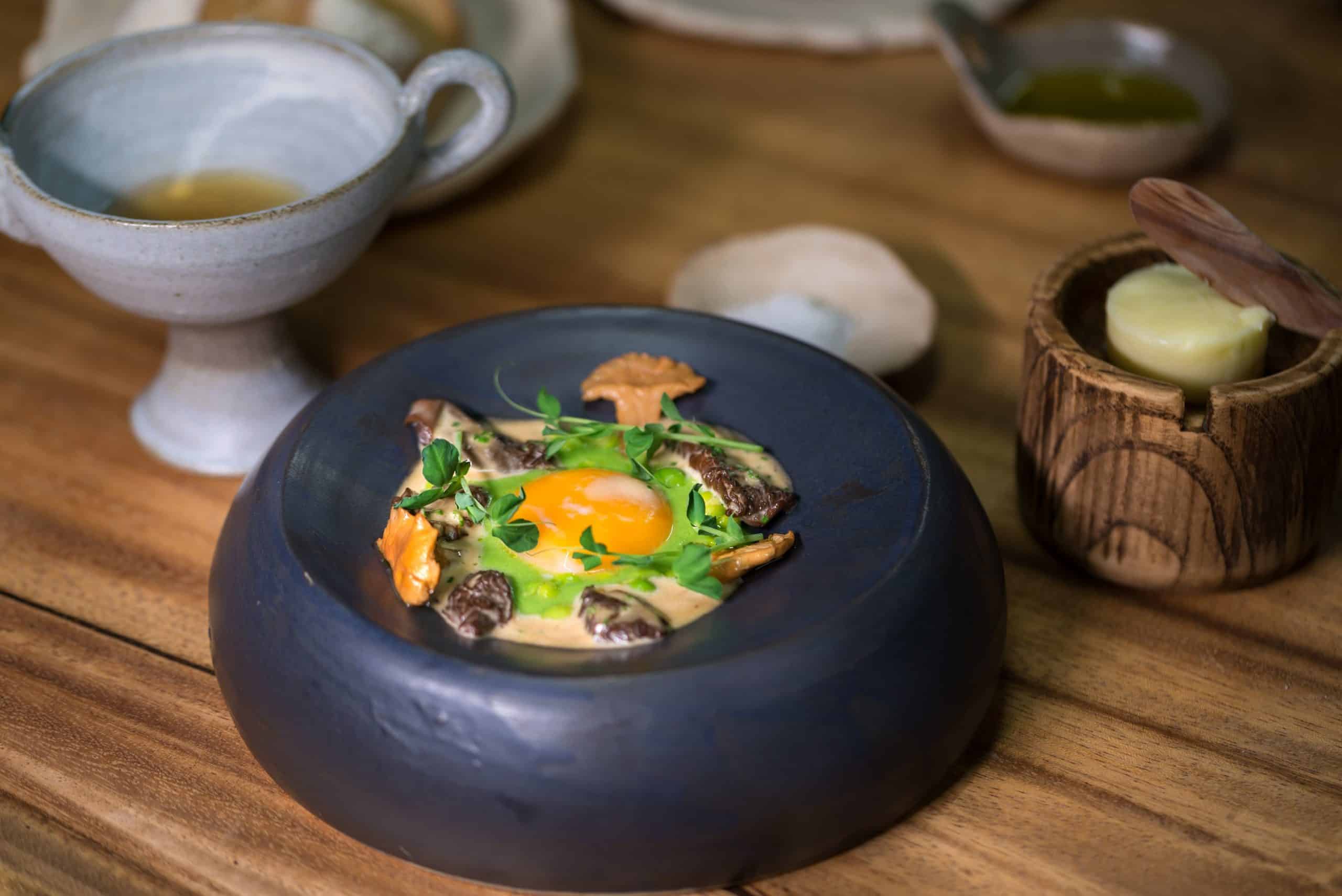
Did you discover any historical surprises in doing your research? Is it a difficult concept to employ? What limits do you have to impose on the kitchen? What’s the hardest thing about following this concept?
Creating vegetable and legume dishes, and sometimes breads, are especially challenging, for a variety of reasons. Firstly, it can be difficult to identify the exact types of vegetables that were available and compare that to today’s grocery list of ingredients to understand what we can cook with. We have to dig a bit deeper into the environmental and seasonal record to try to understand these ingredients, and also to understand regionally to focus on specific parts of Ancient Greece, like the Cyclades to tell a part of the story because this is the home of Opson Restaurant. This land was very large, it extended from Italy to the western coastline of Turkey, and often a small region like the Cyclades or other island cultures would be omitted from the text when discussing culinary habits.
Second, it is challenging! Some of the ancient recipes do not provide all of the needed steps to better understand the ancient process of cooking. Most likely, this is because these steps were common measures that people that cooked generally just knew and no one thought it was important to record. Also, the exact measurements or cooking temperatures can also be omitted in the cooking processes, as well as the conditions of the food that was cooked. All of these details affect the actual cooking procedure and ultimately the taste. The taste that is develop is very important for us and this leads us to another challenge, which is how to prepare and present food that was most likely heavily stewed, grilled, or preserved using ancient methods to look distinct from one another and presented them in a pleasingly way. The hardest thing about following this concept is that you must be rooted in fact, but also a great story teller using both language and sensory knowledge. This is tricky, because the story must be entertaining, yet also true. There is only so much poetic license that one is allowed to use, and finding that balance is our secret to creating an entertaining and information culinary experience that our guests will remember and want to share.
Which parts of history do you find the most interesting and what dishes on the menu come from these periods? Could you describe at least one of these dishes in full please?
Ancient Greece is the most interesting time period for us at Opson, because this period is the foundation for what is to become to Greece today and it is full of foods that are familiar to our diet today…..
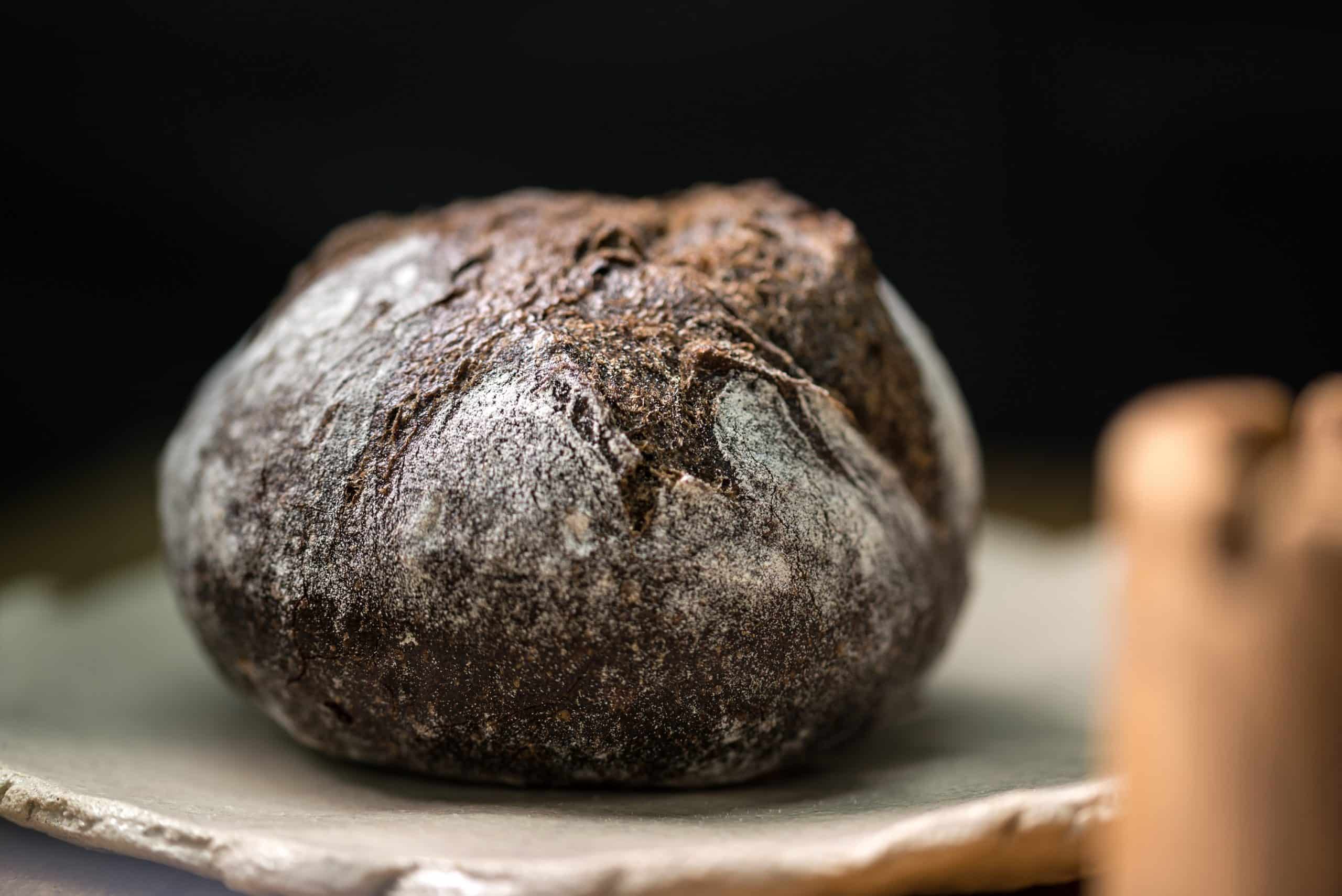
Could you give an example of an ancient culinary technique that you use?
The dish entitled “Poseidon’s Trident” is specifically designed to introduce Opson’s guests to how people in the past prepared and preserved food. We use a fish trio, or a trident, to highlight the ancient methods of smoking, marinating or salting the fish. The tastes created by these techniques are enhanced with the delicate blend of fresh herbs, and seasonal vinegars and sauces.
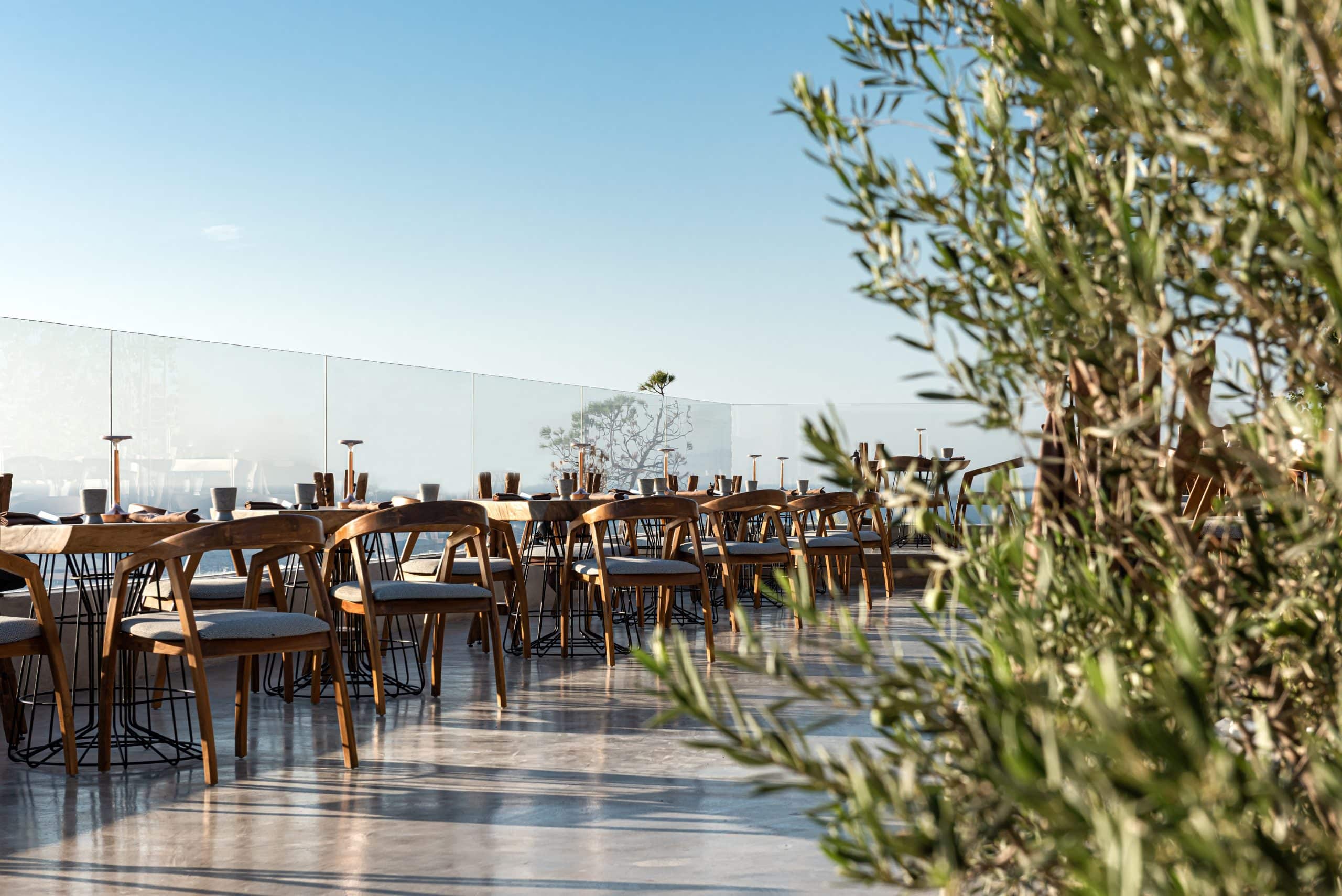
Is there anything unique in the decor/cutlery/dining/front of house, which adds to the ancient dining experience?
Our elegant and modern Ancient Greek inspired ceramic service ware is a popular featurea at Opson! So much so that every now and again a guest will shyly ask for one of our chalice cups to take home as a souvenir. Luckily, we hope to have a modest Opson “Agora” open soon that offers our guest a place to purchase their favorite items! Together our team has worked with ceramic designers in Greece to create Opson’s modern serving dishes and cup. We have ceramic kylix, modern chalice cups, bowls, and plates that are paired with wooden serving accessories.

Are there ingredients that you’ve sourced especially after discovering them in your research?
All of the foods in the menu have been specifically sourced according to the research. For the most part, the foods sources are Greek, Near Eastern, from the Black Sea or Mediterranean region. These are also boarders of Ancient Greece.
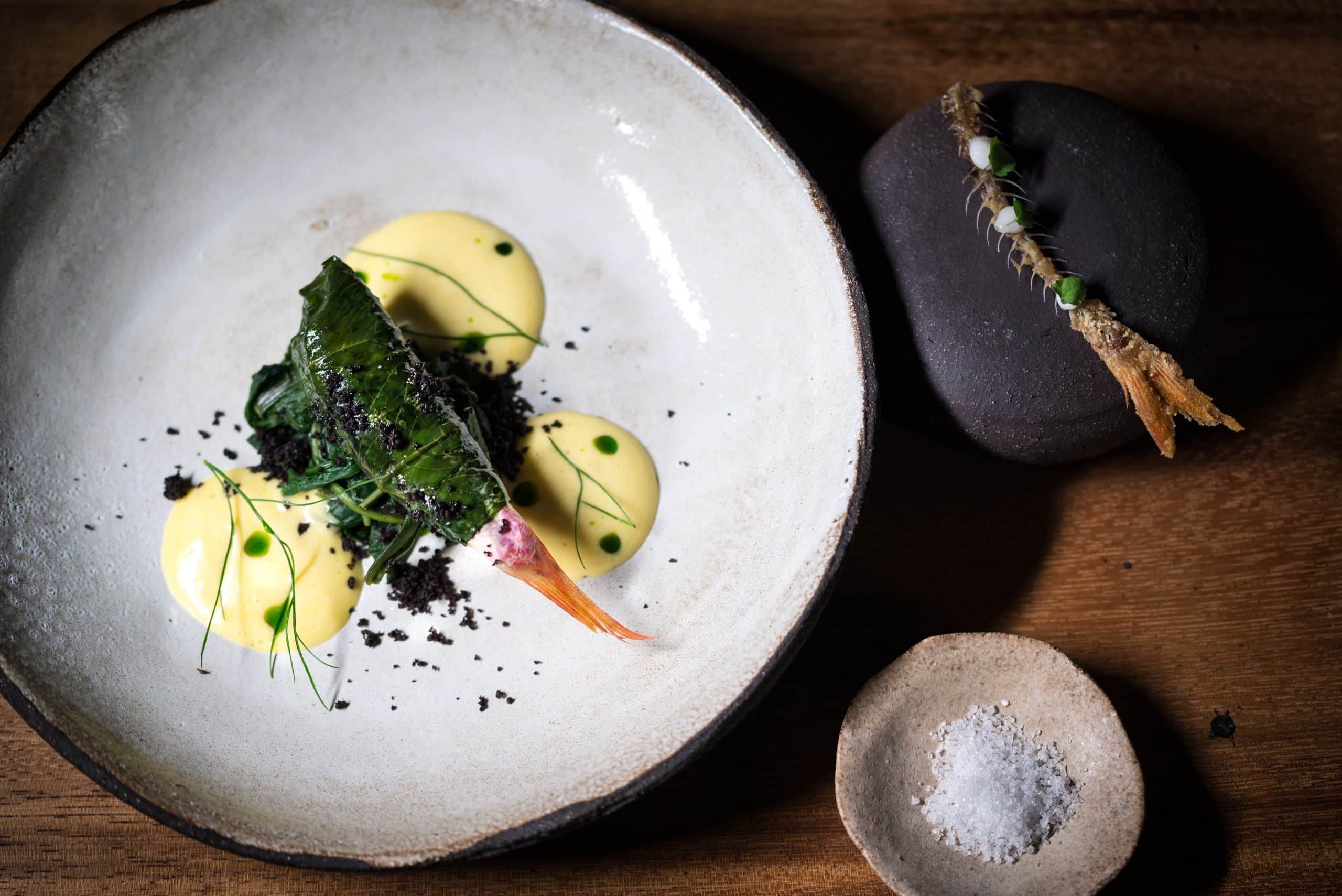
Are there any dishes that really challenge diners?
We intentionally design our menu and tastes to highlight the foods of ancient and modern Greece, but pair it with a modern western pallet. The exotic foods on Opson’s menu include meats like lamb, hare or deer, seafood such as cuttlefish in ink or smoked eel. While these foods are common for the Greek diet, they are not common for all of Europe or the Americas.
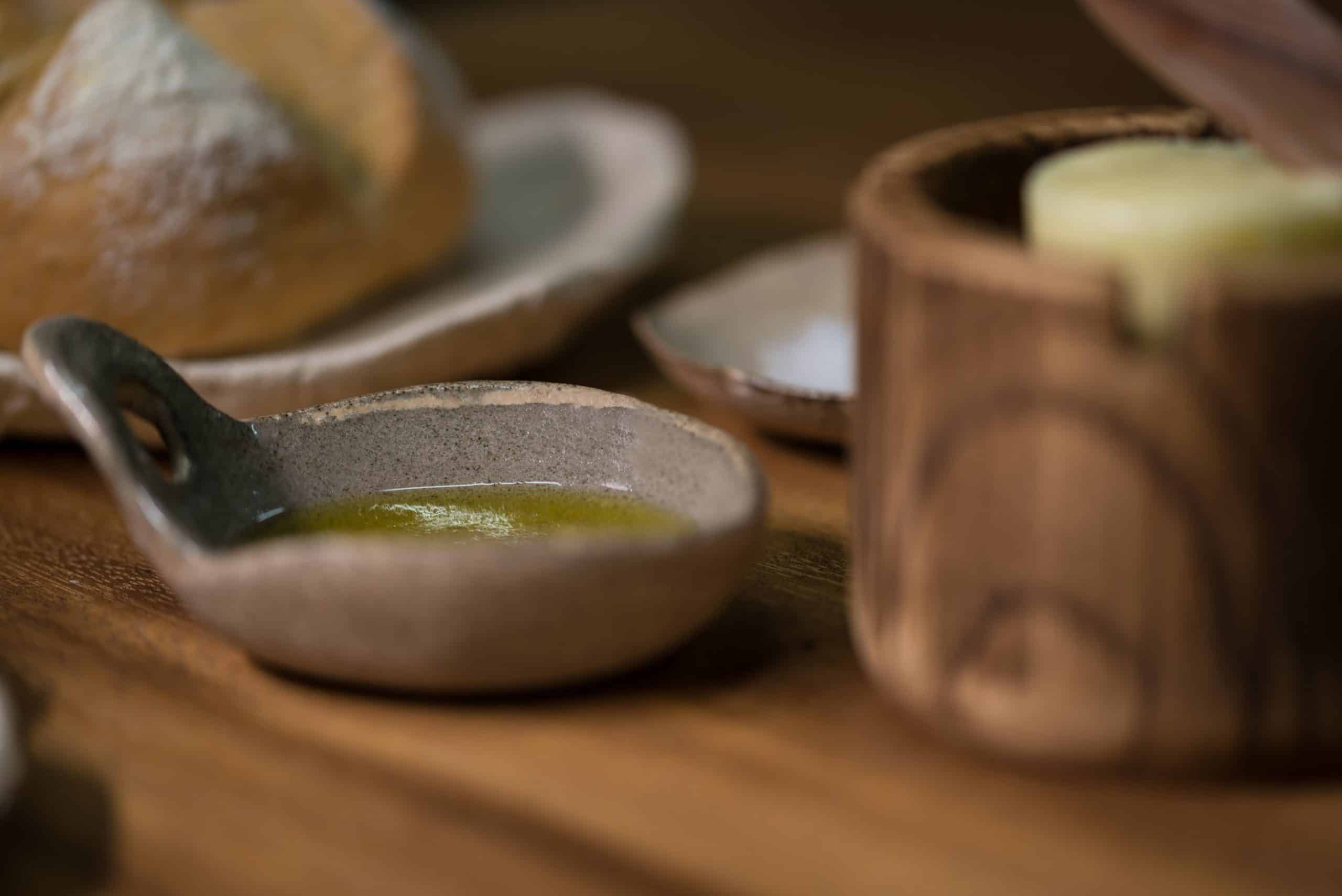
Why do you think diners enjoy this concept?
Guests have told us that they enjoy the Opson concept because they have learned something about Santorini and Greece while enjoying our amazing food and gorgeous wine. Our culinary experience has made the island come to alive to them in a way that no other archaeological tour, sailing trip or fun day at the beach can. We have literally shared a bite of history with them!
Opson Restaurant, Andronis Arcadia
Dr. Jerolyn E. Morrison, Culinary Archaeologist
Chef Stefanos Kolimadis
